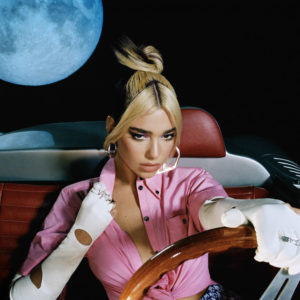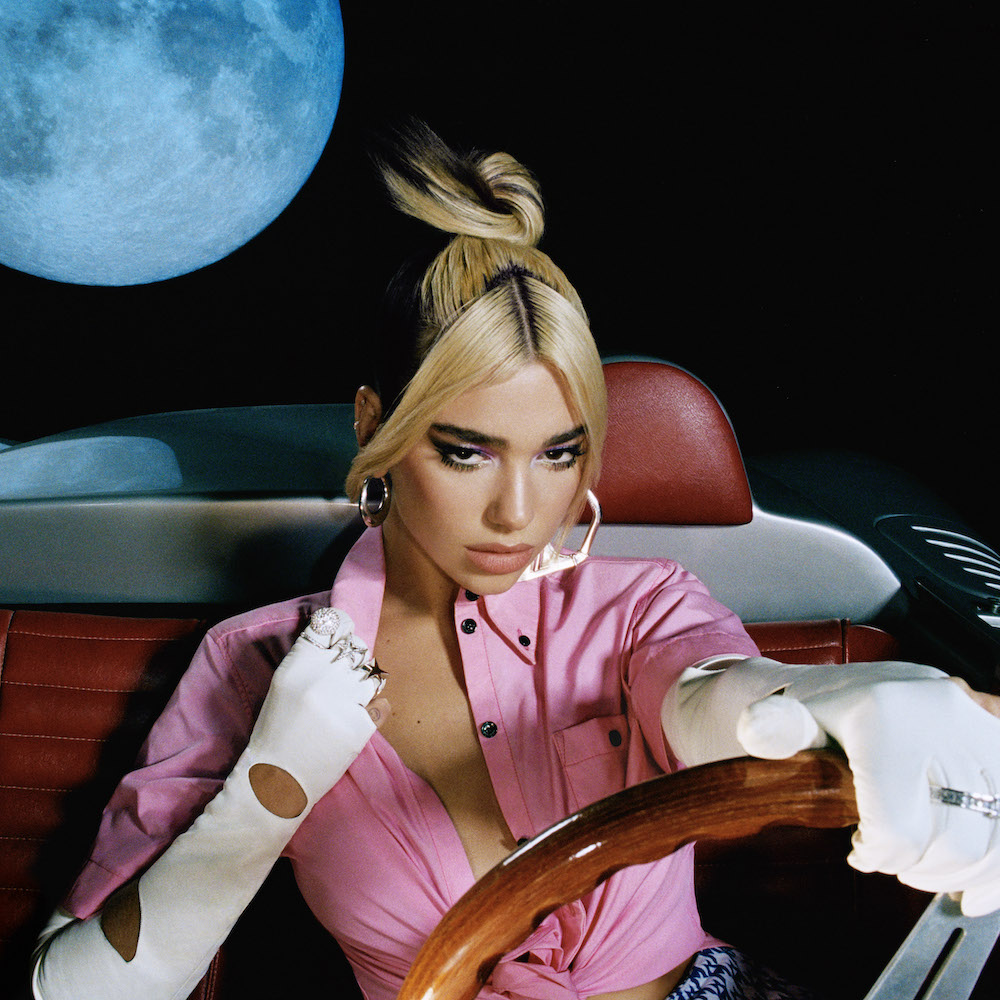Dua Lipa
Future Nostalgia
WARNER
7/10
Second albums are tricky, and will often result in the fabled sophomore slump. When London-born Albanian popstar Dua Lipa did her second Instagram Live appearance (ever), she admitted the pressure to follow up her acclaimed self-titled debut was daunting. “You want a timeless song, I wanna change the game,” she proclaims on her new record’s title track, “Future Nostalgia.” After a three-year hiatus, she delivers a set of “alpha female” dance hits, simultaneously shimmying amidst heartbreak and romance. On Future Nostalgia, she is both grateful for the past and nervous about—though excited for—her future.
Lipa’s inspirations on the album run from deep-cut references to instrumental nods, penning a love letter to dance music’s forebears, including disco and old school rap—ghosts of Sugarhill Gang and Saturday Night Fever, groundbreaking architecture monolith John Lautner, and ’90s hit “Your Woman” by White Town. These songs aren’t merely copycats of past hits—their subtle winks either summon proper nostalgia for an older crowd or act as a reminder to younger generations that every “original” work of art has a predecessor.
On the surface, Future Nostalgia is nearly stacked with hits. There’s the immortal boogie diss track “Don’t Start Now,” the reflective and unrelenting “Cool,” the redemptive, melodramatic “Love Again,” and the absolute highlight, orgasmic equalizer “Pretty Please.” Dua Lipa relies on layered, detailed flourishes—vocoder manipulation, hypnotic synth melodies, lots of sampling, plenty of climax builds and satisfactory releases, and basslines that kick Mark Ronson and Charlie Puth in the ass. Her vocal dexterity and blissful pop production carry the weight of Future Nostalgia, though her lyrical ingenuity is employed awkwardly at times. Specifically, the feminist anthem “Boys Will Be Boys” is a curious note to end on after thirty minutes of push-and-pull pleasure. Not that she’s wrong—the kids most definitely are not alright.
The irony of Future Nostalgia lies in our current quarantined times. The singer was hesitant to release the album at all amidst universal suffering, when so many of us are seeking comfort in creativity while struggling with its relevance in a global pandemic. Deciding to drop it a week early, Lipa granted us a little catharsis, an impetus for dance-crying and minor liberation. Obviously, in the future, we won’t be longing for the time when Future Nostalgia was released, but rather the time when it was recorded. When we imagined going out and rubbing shoulders with one another on the dance floor, sparkling with glitter and sweat.







